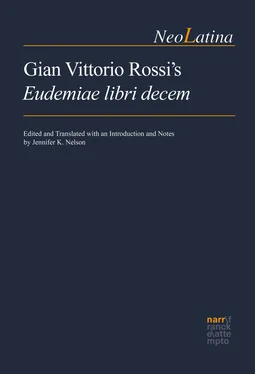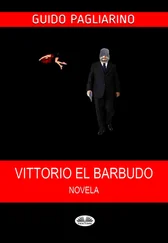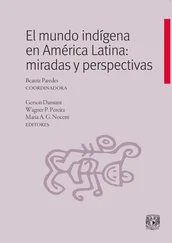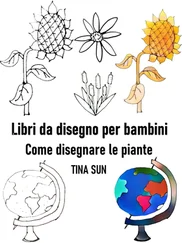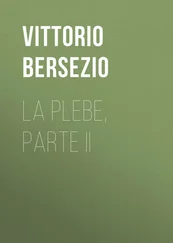Eudemia is at once an entertaining tour de force of Classical erudition and an intimately personal introduction to his own circle. As GiachinoGiachino, Luisella explains, Eudemia ’s plot is secondary to “what today we would call ‘gossip,’ the incessant and vicious scuttlebutt that animates and involves all of the characters.”6 RossiRossi, Gian Vittorio becomes our guide—our GalloniusGallonius (Gabriel Naudé?)—as he introduces us to his friends, lets us in on the debates of the day, and airs his grievances with a society that admired him but never completely embraced him.
State of Scholarship on Eudemia
Gian Vittorio RossiRossi, Gian Vittorio was a prolific writer who maintained an active correspondence with friends in high places, enjoyed a reputation as a superlative Latinist among his contemporaries, and remained famous in Northern Europe, particularly in Germany, for more than a century after his death.1 In spite of this, however, he remains a largely unexplored figure in Italian literature. Luigi GerboniGerboni, Luigi, the nineteenth-century scholar who wrote the most extensive biography of Rossi, lamented that this Roman author had all but been ignored even by Italian scholars: “Our critical tradition has forgotten his [literary output], or rather, has never known about it”2; likewise, Benedetto CroceCroce, Benedetto remarked that, unfortunately, nobody showed any interest in Rossi.3 The most recent and thorough analysis of Eudemia is Luisella GiachinoGiachino, Luisella’s 2002 article “ Cicero Cicero, Marcus Tullius libertinus : La satira della Roma barberiniana nell’ Eudemia dell’Eritreo,” in which she offers a detailed summary of the work and discusses its major themes. Giachino also authored the entry for Rossi in the Dizionario Biografico degli Italiani .4
Though literature specifically on Gian Vittorio RossiRossi, Gian Vittorio and his works is slight, interest in Neo-Latin literature in general has happily been increasing. In the 1970s Jozef IJsewijnIJsewijn observed that, with regard to scholarly work on Neo-Latin authors of the sixteenth and seventeenth centuries, “almost everything remains to be done.”5 Thirty years later, the scholarly status of Neo-Latin authors had not changed much when Jennifer MorrishMorrish, Jennifer remarked that they were “little known today and not much read” because, among other things, most of the texts are available only in their original Latin and do not exist in modern editions.”6 More recently, there has been significant progress in creating new editions and translations of Neo-Latin texts, notably the I Tatti Renaissance Library (Harvard University Press), the Bibliotheca Latinitatis Novae Neo-Latin Texts and Translation series (Leuven University Press), the Bloomsbury Neo-Latin Series, and the present NeoLatina series (Tübingen: Narr-Verlag). New reference works such as Brill’s Encyclopedia of the Neo-Latin World , the Oxford Handbook of Neo-Latin , and the Guide to Neo-Latin Literature from Cambridge University Press have also brought ever greater scholarly attention to Neo-Latin literature.
Despite this increased interest, Gian Vittorio RossiRossi, Gian Vittorio has largely been ignored, his works usually mentioned only in passing as part of a larger list of Neo-Latin authors and texts.7 Factors that have contributed to Rossi’s near obscurity include the fact that he was writing in Latin at a time when vernacular languages were ascending in Europe as the principal vehicle for literary expression and exchange of ideas; none of his work was ever translated for a broader reading public8; and, in the case of Eudemia , readers over the centuries may have lost interest in the satire because it was too tied to Rossi’s own circle of acquaintances, thus, to quote Dustin GriffinGriffin, Dustin H., “los[ing] referential power over time.”9
RossiRossi, Gian Vittorio’s works deserve further scholarly attention both on their own merits and because they provide a window into the dynamic cultural period in which he lived. Rossi was an insider witness to seventeenth-century Rome, a period that could be characterized as, in the words of Jozef IJsewijnIJsewijn, a “thriving center of Latin literature on an international scale.”10 His literary output was prolific and encompassed many genres, including letters, dialogues, orations, biographies, poetry, and, of course, fiction. Last but not least, his works are highly enjoyable to read because his personality—by turns witty, incisive, pious, and caustic—comes through on almost every page.
Life of Gian Vittorio RossiRossi, Gian Vittorio
Gian Vittorio RossiRossi, Gian Vittorio was born in 1577 in Rome to a family that he describes as noble but not wealthy: “The short answer is that I come from a good family and am descended from noble people of modest means.”1 He had a younger brother, Andrea, and a younger sister whom he never mentions by name.2 Rossi was educated at the Jesuit Collegio Romano, where he was a pupil of such teachers as Bernardino StefonioStefonio, Bernardino and Francesco BenciBenci, Francesco, the latter a student of the French humanist Marc-Antoine MuretMuret, Marc-Antoine, one of the greatest Latinists of the Renaissance. When Rossi was seventeen years old his father died, and his family was placed in a precarious financial state exacerbated by his brother Andrea’s penchant for making bad business investments and defaulting on loans, which resulted in the loss of the family’s good name among creditors.3 Finding himself, as the eldest son, in the position of head of household, Rossi studied law with the hope that this degree would lead to an administrative position within the papal court. He completed his degree in Roman and canon law in 1596 at the age of nineteen.
RossiRossi, Gian Vittorio’s professional future seemed bright at first when, upon finishing his legal studies, he caught the attention of an individual whom he does not name but describes as “the most learned and famous by far and occupying an important magisterial office”; and he was offered a position coveted by many young professionals “because it was honorable and well paid.”4 Rossi held this post for little more than a year, when this patron died suddenly, leaving him without employment. He soon entered an apprenticeship in contract law under the renowned lawyer Lepido Piccolomini, but this mentor died after only a few years.5
Following Piccolomini’s death, and after several attempts to enter into the service of one cardinal or another,6 RossiRossi, Gian Vittorio became generally disillusioned with the law. He withdrew to a house on the Janiculum Hill and devoted himself to humanistic studies.7 In one of his autobiographical dialogues he explicitly expressed, in the persona of an interlocutor named Nicius, his preference for ancient Roman authors over the jurists and Roman law glossators such as AccursiusAccursius, Franciscus and BartolusBartolus of Saxoferrato of Saxoferrato, whose writings would have been an integral part of his legal training: “I much preferred reading the works of PlautusPlautus, Titus Maccius, TerenceTerence, CiceroCicero, Marcus Tullius, and Caesar to those of Accursius, Bartolus, and authors of their ilk.”8
During the early 1600s, when RossiRossi, Gian Vittorio was turning away from the law to focus on the liberal arts, he began attending meetings of the Accademia degli Umoristi (Academia Humoristarum), a literary society frequented by the most celebrated authors, scholars, and artists in Rome.9 The Academy originated as a loose association of writers, but it incorporated in 1608, at which point formal rules were established,10 and an official emblem was adopted depicting the sun partially obscured by precipitating clouds, accompanied by the Lucretian motto “redit agmine dulci” ([the water] returns in a sweet stream”).11 The Academy’s name stems from the main activity of its members, which was, at least initially, writing and performing comic plays in the style of ancient playwrights such as PlautusPlautus, Titus Maccius and TerenceTerence. Over time the Accademia degli Umoristi added more poetry and prose to their repertoire. The Academy boasted many well-known Italian poets as its Principe, or head, including Alessandro TassoniTassoni, Alessandro (elected in 1606),12 Giovanni Battista GuariniGuarini, Giovanni Battista (elected in 1611), and Giambattista MarinoMarino, Giambattista (elected in 1623).
Читать дальше
